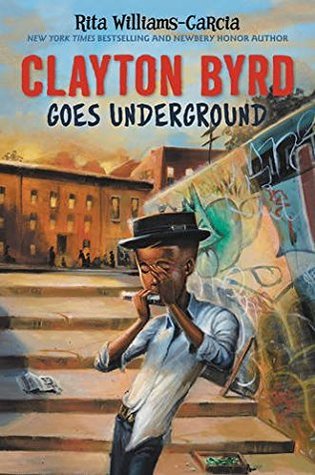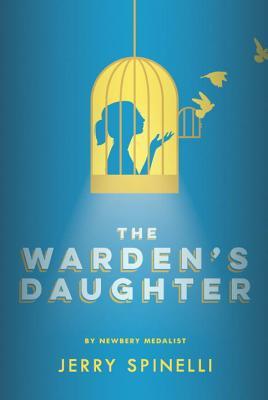Did you ever feel like the Universe was speaking directly to you via your seemingly random book choices? Here's a run of recent middle grade novels (some are more middle school than middle grade/5th grade-ish) that had much to teach me about grieving and loss.
Be Light Like a Bird
by Monika Schröder
Capstone Young Readers, 2016
review ARC provided by the author
Wren's father dies in a plane crash and because his body is not recovered, she feels a lack of closure. Not only is Wren grieving, but her mother, in very different ways, is too. This is a beautifully written story of love, loss, grief, and healing.
Clayton Byrd Goes Underground
by Rita Williams-Garcia
Amistad, May 2017
review ARC received at ALA
Clayton Byrd adores his grandfather, a jazz musician. Cool Papa is even more a father to him than his real father, who does not live with them. When Cool Papa dies, Clayton and his mother grieve very differently. She sells or gives away all of Cool Papa's belongings, and Clayton runs away with his harmonica to find Cool Papa's Bluesmen and join them on the road. Again: love, loss, grief, and healing.
Matylda, Bright and Tender
by Holly M. McGhee
Candlewick Press, March 2017
review copy provided by the publisher
This is probably the best middle grade (4-5-6) novel about loss and grief that I've read since Bridge to Terabithia. The author shows readers the depth of the friendship between Sussy and Guy -- from kindergarten until fourth grade. She shows us how fast life can change, and because she has made us love her characters as much as they love each other, walks the reader through the grieving process along with them. Love, loss, grief, healing, and a beloved animal, Matylda, the leopard gecko who was Sussy and Gus' shared pet.
One Amazing Elephant
by Linda Oatman High
HarperCollins, February 2017
review copy purchased at Tattered Cover
Lily Pruitt's grandparents are circus people. Queenie Grace is Grandpa Bill's elephant, and they are as close as human and animal could be. Trullia, Lily's mother, is a trapeze artist in the circus, but Lily is content to live safely in West Virginia with her father. Then Grandpa Bill dies, and Lily has to learn to overcome her grief and fear in order to help Queenie Grace through
her grief. The story is told through alternating chapters from Lily's and Queenie Grace's points of view. Love, loss, grief, healing, and a beloved animal.
The Warden's Daughter
by Jerry Spinelli
Arthur A. Knopf Books for Young Readers, January 2017
review copy purchased at Tattered Cover
The Warden's Daughter is probably more middle school (6, 7, 8, 9) than middle grade (4, 5, 6), but readers who loved Maniac Magee might like finding similar details in the rich descriptions of the setting in this book.
Cammie's mother died in a tragic accident when she was just a baby, but as a twelve-turning-thirteen year-old, she is still working through acceptance and understanding. Her nickname has always been Cannonball because of the way she blasts through life, and this is the summer when everything explodes. She's not a nice character, but like the characters in Spinelli's book Crash, you stay with her and her story so you can see how she changes in the end.
As in all of these books, the main character dealing with loss and grief is the child, but there is also a window into the ways adults grieve as well. One Amazing Elephant and Clayton Byrd Goes Underground have parallel stories of grief because of children whose parents are estranged. One Amazing Elephant and Matylda, Bright and Tender feature beloved animals. Be Light Like a Bird and The Warden's Daughter have richly detailed settings.
It's been an amazing run of reading with overlapping themes and issues, but I have to say, I'm ready to read something a little lighter!
















